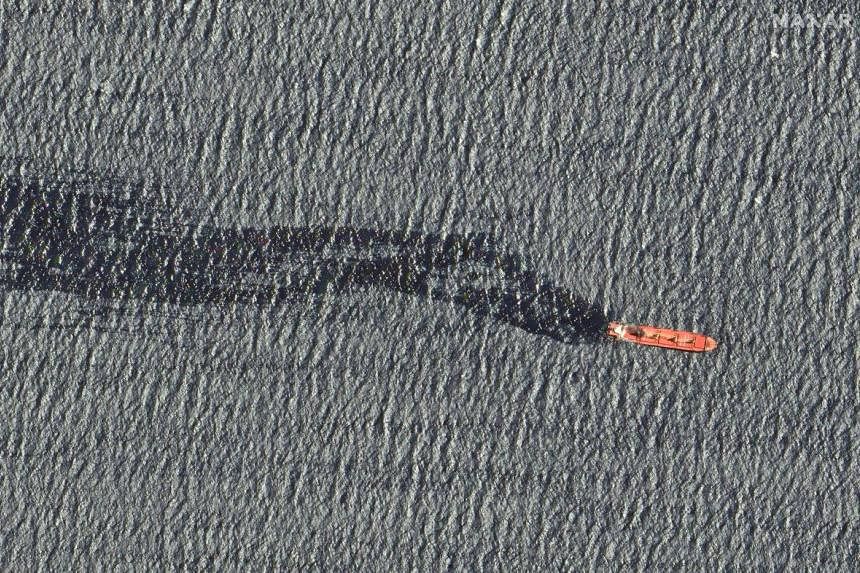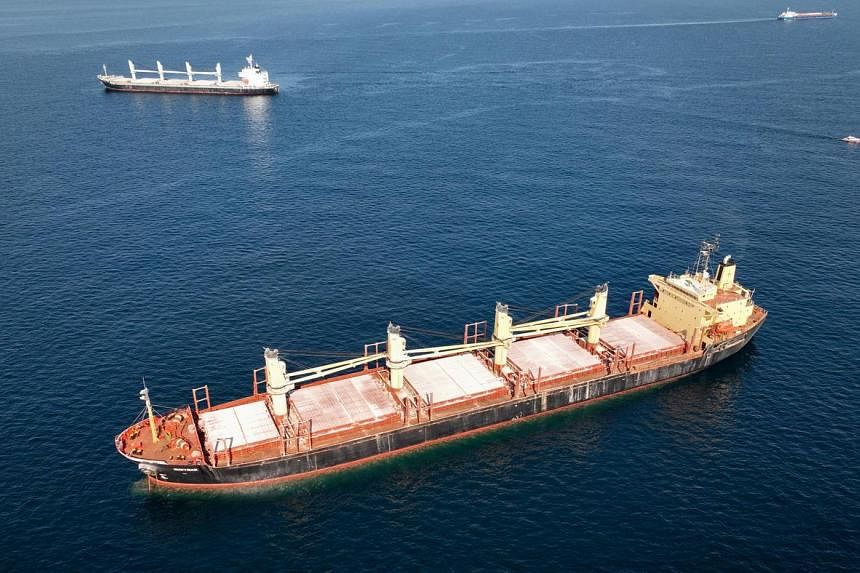ADEN, Yemen - A UK-owned ship attacked by Houthi militants last month sank in the Red Sea, the U.S. military confirmed on Saturday, as it echoed a warning from Yemen's internationally recognised government that the vessel's cargo of hazardous fertiliser posed a risk to marine life.
The Belize-registered Rubymar is the first vessel lost since the Houthis began targeting commercial ships in November. Those drone and missile assaults have forced shipping firms to divert ships to the longer route around southern Africa, disrupting global trade by delaying deliveries and sending costs higher.
The sinking bulk carrier also "presents a subsurface impact risk to other ships transiting the busy shipping lanes of the waterway," U.S. Central Command (CENTCOM) said in its statement on social media platform X.
The Iran-aligned Houthis, who control the north of Yemen and other large centres, say their campaign is a show of solidarity with Palestinians in Gaza.
The Houthi attacks have prompted a series of strikes against their positions by the United States and Britain, and have led other navies to send vessels to the region to try to protect the vital Suez Canal trade route.
The Rubymar went down in the southern Red Sea late on Friday or early on Saturday, according to statements from the Yemen government and CENTCOM.
The U.S. military previously said the Feb. 18 missile attack had significantly damaged the bulk vessel and caused an 18-mile (29-km) oil slick. The ship was carrying about 21,000 metric tons of fertiliser, CENTCOM said on Saturday.
Ahmed Awad bin Mubarak, the foreign minister in Yemen's internationally recognised government in Aden, said in a post on X: "The sinking of the Rubymar is an environmental catastrophe that Yemen and the region have never experienced before.
"It is a new tragedy for our country and our people. Every day we pay the price for the adventures of the Houthi militia ..."
The internationally recognised government, which is backed by Saudi Arabia, has been at war with the Houthis since 2014.
MARINE LIFE THREATENED
The release of such large amounts of fertiliser into the Red Sea poses a serious threat to marine life, said Ali Al-Sawalmih, director of the Marine Science Station at the University of Jordan.
The overload of nutrients can stimulate excessive growth of algae, using up so much oxygen that regular marine life cannot survive, said Al-Sawalmih, describing a process called eutrophication.
"An urgent plan should be adopted by countries of the Red Sea to establish monitoring agenda of the polluted areas in the Red Sea as well as adopt a cleanup strategy," he said.
The overall impact depends on how ocean currents deplete the fertiliser and how it is released from the stricken vessel, said Xingchen Tony Wang, assistant professor at the Department of Earth and Environmental Sciences at Boston College.
The ecosystem of the southern Red Sea features pristine coral reefs, coastal mangroves and diverse marine life.
Last year, the area avoided a potential environmental disaster when the United Nations removed more than 1 million barrels of oil from a decaying supertanker moored off the Yemen coast. That type of operation may be more difficult in the current circumstances.
The Houthi attacks have stoked fears that the Israel-Hamas war could spread, destabilising the wider Middle East.
In a separate report, the UKMTO agency said it had received a report of a ship being attacked 15 nautical miles west of Yemen's port of Mokha.
"The crew took the vessel to anchor and were evacuated by military authorities," the UKMTO said in an advisory note.
Italy's defence ministry also said that one of its naval ships had shot down a drone flying towards it in the Red Sea.
The Houthi Transport Ministry, meanwhile, said there had been a "glitch" in undersea communication cables in the Red Sea as a result of actions by U.S. and British naval vessels. It did not give further details. REUTERS


